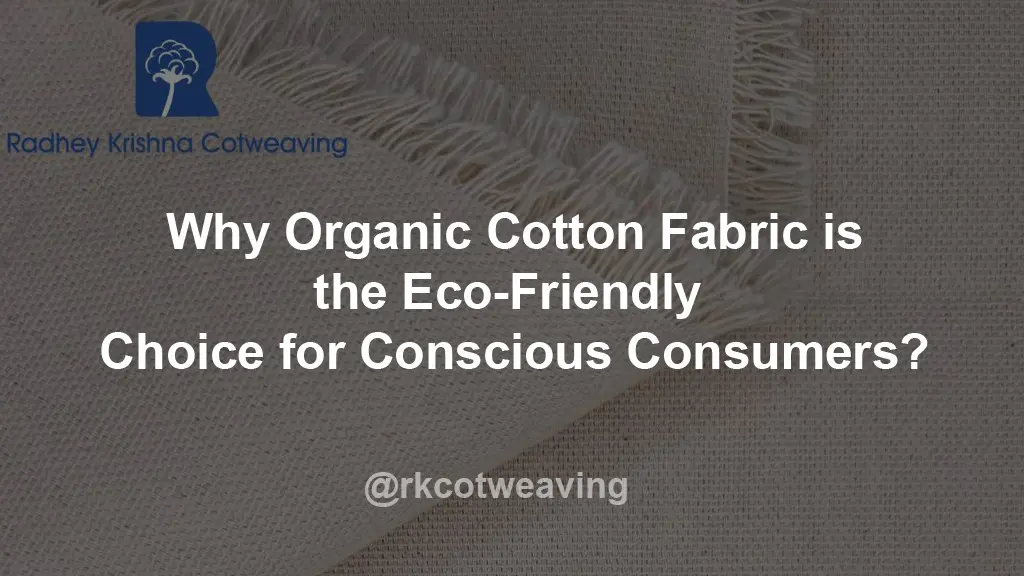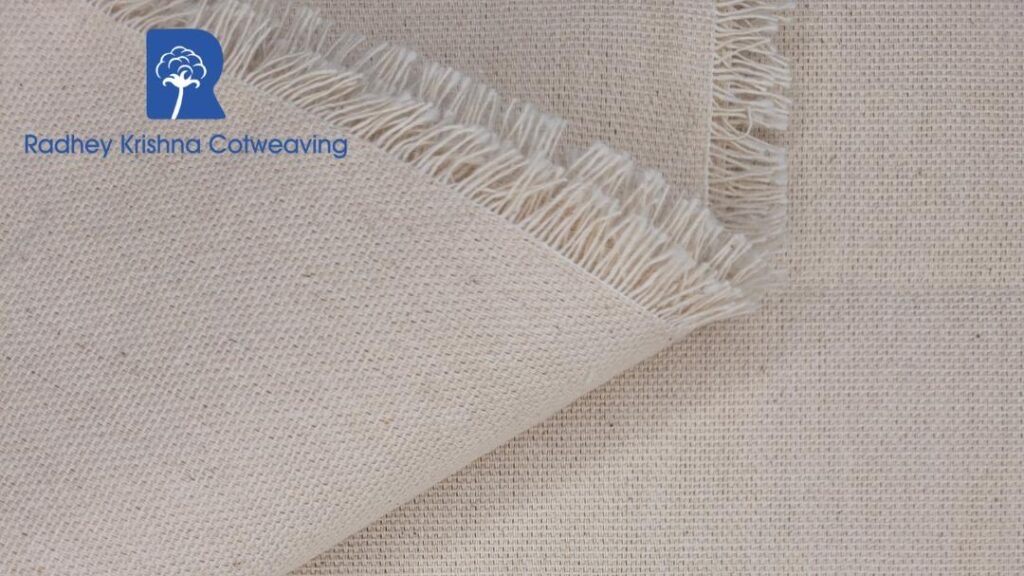- Home
- About
- Products100% Cotton Fabric100% Polyster FabricCotton Polyster BlendJUCO FabricHemp FabricChambray/Yarn DyedDyed Finished FabricCanvas Drop ClothMelange Fabric
Single Fill Duck
Army Duck Fabric
Numbered Duck
- 200 GSM Cotton Polyester Mix Canvas Fabric
- 220 GSM Cotton Polyester Mix Canvas Fabric
- 290 GSM Cotton Polyester Mix Canvas Fabric
- 295 GSM Cotton Polyester Mix Canvas Fabric
- 315 GSM Cotton Polyester Mix Canvas Fabric
- 375 GSM Cotton Polyester Mix Canvas Fabric
- 390 GSM Cotton Polyester Mix Canvas Fabric
- 470 GSM Cotton Polyester Mix Canvas Fabric
- Eco Weav
- Re Weav
- Certificates
- Contact Us

Why Organic Cotton Fabric is the Eco-Friendly Choice for Conscious Consumers?
In the realm of sustainable textiles, Organic Cotton Fabric emerges as a shining example of how fashion and eco-consciousness can harmoniously intertwine. This environmentally friendly material, cultivated without harmful chemicals and pesticides, represents a significant shift towards more responsible farming practices. By choosing Organic Cotton Fabric, consumers not only embrace a softer, purer, and more durable alternative to traditional cotton but also make a profound commitment to reducing their environmental footprint. This fabric is not just a choice; it’s a statement of care for the planet and a step towards a more sustainable future.
The Essence of Organic Cotton Fabric
What is Organic Cotton used for? Organic Natural Cotton Fabric is the cornerstone of the movement towards environmentally friendly textiles. Unlike conventional cotton, organic cotton is cultivated in a way that significantly lessens environmental impact. This natural fabric is nurtured without the crutch of synthetic chemicals, making it a bastion of sustainability. The organic cotton fabric collection prides itself on being crafted from natural fibers, employing dyes and inks that are kind to the Earth. The stringent avoidance of synthetic pesticides, insecticides, herbicides, and GMOs (Genetically Modified Organisms) during its cultivation ensures that every thread woven is a testament to environmental stewardship.
Choosing Organic Natural Cotton Fabric is not just a matter of eco-friendliness; it’s a stand for ethical practices in the textile industry. The cultivation of organic cotton promotes healthier working conditions for farmers by sparing them from exposure to harmful chemicals. Moreover, it supports biodiversity and helps in maintaining the balance of ecosystems. When consumers choose organic cotton, they are making a commitment to a sustainable future and ethical industry practices.

The Radhey Krishna Cotweaving Commitment
In the quest for high-quality organic cotton fabric, Radhey Krishna Cotweaving emerges as a beacon of excellence. Based in Kishangarh, Rajasthan, this family-owned organization is a testament to the fusion of tradition and eco-conscious innovation. With a firm belief in quality and value for money, Radhey Krishna Cotweaving has carved a niche as a leading manufacturer and exporter of greige and finished fabrics.
The foundation of Radhey Krishna Cotweaving’s success lies in its dedicated and growth-oriented promoters, backed by a team of 150 seasoned professionals. This highly professional team is committed to delivering not just products but a promise – a promise of best quality standards, 100% satisfaction guarantee, a robust quality control system, unwavering commitment to customers, and the pride of being a PAN India fabrics distributor.
Environmental Impact and Sustainability
The environmental footprint of Organic Cotton Sustainable Fabric is significantly lighter compared to its conventional counterpart. The absence of toxic runoff from synthetic pesticides and fertilizers means cleaner rivers, lakes, and groundwater. Organic cotton farming also tends to consume less water, thanks to more sustainable farming practices like rain-fed irrigation, which further underscores its role in promoting sustainability.
Moreover, organic cotton fields are often rotated with other crops, enhancing soil fertility and leading to a more balanced ecosystem. This holistic approach to farming not only nurtures the soil but also supports a diverse array of wildlife.
The Comfort and Quality of Organic Cotton
Beyond its environmental and ethical credentials, Organic Natural Cotton Fabric does not compromise on comfort and quality. The natural softness of organic cotton makes it gentle on the skin, making it an ideal choice for people with sensitive skin or allergies. Moreover, organic cotton is known for its durability and longevity, ensuring that consumers get value for money without sacrificing the planet’s health.
Our GOTS certification is a testament to our dedication to sustainable textile production. We ensure that all our products are made from organic fibers and meet the stringent quality and environmental standards set by GOTS.
Conclusion: Making the Conscious Choice
In embracing Organic Cotton Fabric, consumers make a powerful statement in support of environmental sustainability, ethical labor practices, and quality craftsmanship. Radhey Krishna Cotweaving, with its dedication to excellence and eco-friendly practices, stands as a prime example of how the textile industry can evolve to meet the demands of conscious consumers.
As we move forward, the choice of organic cotton is more than just a personal preference; it’s a collective step towards a more sustainable and ethical future. By choosing organic cotton fabric, we not only adorn ourselves in nature’s finest but also contribute to a movement that values the planet as much as the product.


